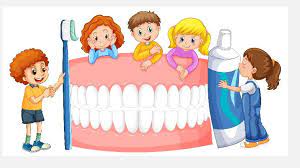
Protecting Your Smile: Oral Health Day and the Benefits of Good Oral Hygiene
Discover the key to overall well-being through the lens of oral health. Embrace the significance of maintaining good dental hygiene practices. Learn how neglecting your health can have serious consequences and explore the positive impact of preventive measures, including regular dental check-ups. Join us in promoting awareness about the importance of oral health for a healthier and happier life.

Oral health is an essential part of overall health and well-being. It affects our ability to eat, speak, and socialize without discomfort or embarrassment. However, many people neglect their health, leading to a range of dental problems that can have serious consequences. That’s why World Oral Health Day is celebrated every year on March 20th to raise awareness about the importance of your health and promote good dental hygiene practices.
The Importance of Oral Health
It is not just about having a bright smile and fresh breath. It is also crucial for preventing tooth decay, gum disease, and other health problems that can lead to pain, infection, and tooth loss. Poor health has also been linked to several systemic diseases such as heart disease, diabetes, and stroke. Therefore, maintaining good hygiene practices such as brushing twice a day, flossing daily, and visiting the dentist regularly is essential for overall health and well-being.
Neglecting your health can have serious consequences. Tooth decay and gum disease are the most common dental problems that can lead to tooth loss if left untreated. In addition, poor health can also affect self-esteem and confidence, leading to social isolation and depression. Moreover, some problems such as mouth cancer can be life-threatening if not detected early.
Preventing dental problems starts with good hygiene practices. Brushing twice a day with fluoride toothpaste, flossing daily, and using mouthwash can help remove plaque and prevent tooth decay and gum disease. In addition, eating a balanced diet rich in fruits and vegetables and avoiding sugary and acidic foods and drinks can also promote good health. Regular dental check-ups and cleanings are also crucial for maintaining health and detecting any dental problems early.
In conclusion, World Oral Health Day is an important reminder of the significance of dental health in our lives. Neglecting our health can have serious consequences for our overall health and well-being. Therefore, it is essential to practice good hygiene habits, seeking professional help when needed, and promoting awareness about the importance of oral health in our communities.
Disclaimer: The information provided in this content is for general informational purposes only. It is not intended as medical or healthcare advice, diagnosis, or treatment. Always seek the advice of a qualified healthcare professional with any questions you may have regarding a medical condition or healthcare decisions.

